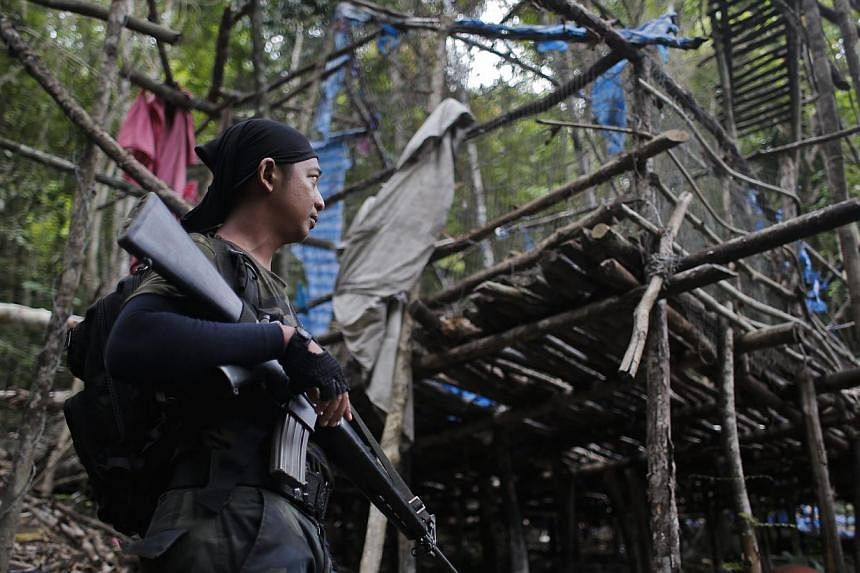WANG KELIAN (THE STAR/ASIA NEWS NETWORK) - The campsites built by human traffickers near here were said to have been found early this year, contrary to claims that they were discovered on May 11.
Personnel from the General Operations Force involved in the combing exercise said the sites in Perlis were found earlier.
One of them, who declined to be named, claimed they found a site following a major arrest of illegal immigrants in January this year.
"Those detained told us where they came from and we followed the trail until we found the campsite," he said.
Another officer confirmed that the camp was actually discovered in November last year.
However, he was unsure why the matter was only being made public now.
"When we discovered this camp, there were some 50 people, believed to be Rohingya and Bangladeshi, caged.
"They looked weak and starving," he said, adding that no Malaysian was found at the camp.
Padang Besar OCPD Supt Rizani Che Ismail believed the camp had been there for some time too, declining to divulge further.
Earlier before the hike, North Brigade General Operations Force staff officer for operations Deputy Supt Mohd Salleh Mohd Hussain said there was only one holding camp in Wang Burma hill.
The rest of the camps and graves were at Wang Perah hill.
Pressed by reporters at the General Operations Force tactical base on what took the authorities so long to unearth the camps, Supt Rizani declined to comment.
He said the mission on Tuesday was to send the forensic and CID personnel to one of the campsites for the exhumation process.
"The team found a body wrapped in white cloth from one of the graves.
"The remains have been sent to our forensic unit," he said.
Earlier, over 60 newsmen hiked to one of the campsites measuring 100sq m, more than 400m above sea level in the Wang Burma hill within the Perlis State Park.
Local villagers too have told the AFP news agency the human clues were right there in plain sight.
Sani is one of many residents of the remote area in Perlis state who say that starving illegal migrants - some bearing signs of mistreatment - have for years staggered from nearby thickly jungled hills, where a network of graves and camps was recently found.
Their accounts stand in stark contrast to those of Malaysian authorities - long accused by activists of tolerating an abusive and deadly regional human-trafficking trade - who claim the grisly discovery came as a surprise.
"I have lived here for 30 years and I have seen many Rohingya, and they are always in bad shape," said Sani Hashim, 80, referring to the Muslim Rohingya minority which flees persecution in Myanmar.
Emaciated Rohingya routinely approach his small farm to beg for food, water and clothing. "We do what we can. And if they are not able to stand or walk, we call the authorities who take them away," he told AFP.

